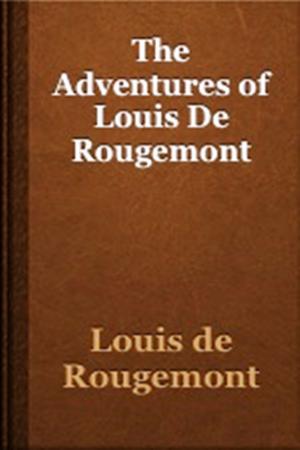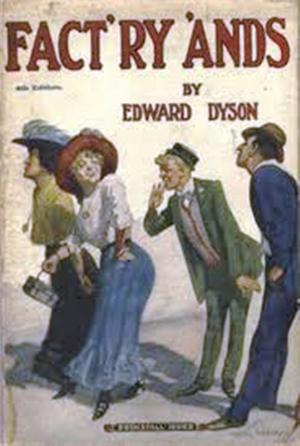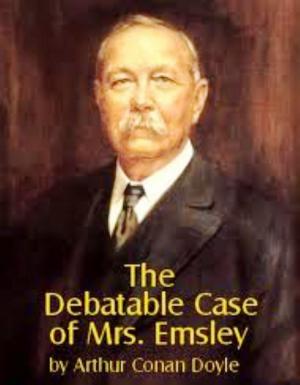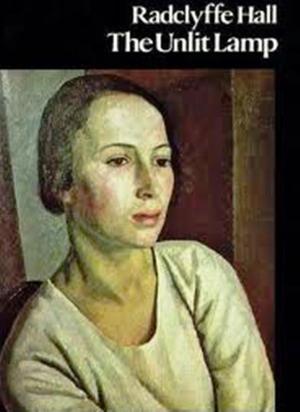| Author: | Mary E. Braddon | ISBN: | 1230000143382 |
| Publisher: | WDS Publishing | Publication: | June 20, 2013 |
| Imprint: | Language: | English |
| Author: | Mary E. Braddon |
| ISBN: | 1230000143382 |
| Publisher: | WDS Publishing |
| Publication: | June 20, 2013 |
| Imprint: | |
| Language: | English |
He was an artist--such things as happened to him happen sometimes to artists.
He was a German--such things as happened to him happen sometimes to Germans.
He was young, handsome, studious, enthusiastic, metaphysical, reckless, unbelieving, heartless.
And being young, handsome and eloquent, he was beloved.
He was an orphan, under the guardianship of his dead father's brother, his uncle Wilhelm, in whose house he had brought up from a little child; and she who loved him was his cousin--his cousin Gertrude, whom he swore he loved in return.
Did he love her? Yes, when he first swore it. It soon wore out, this passionate love; how threadbare and wretched a sentiment it became at last in the selfish heart of the student! But in its first golden dawn, when he was only nineteen, and had just returned from his apprenticeship to a great painter at Antwerp, and they wandered together in the most romantic outskirts of the city at rosy sunset, by holy moonlight, or bright and joyous morning, how beautiful a dream!
They keep it a secret from Wilhelm, as he has the father's ambition of a wealthy suitor for his only child--a cold and dreary vision beside the lover's dream.
So they are betrothed; and standing side by side when the dying sun and the pale rising moon divide the heavens, he puts the betrothal ring upon her finger, the white and taper finger whose slender shape he knows so well. This ring is a peculiar one, a massive golden serpent, its tail in its mouth, the symbol of eternity; it had been his mother's, and he would know it amongst a thousand. If he were to become blind tomorrow, he could select it from amongst a thousand by the touch alone.
He places it on her finger, and they swear to be true to each other for ever and ever--through trouble and danger--sorrow and change---in wealth or poverty. Her father must needs be won to consent to their union by-and-by, for they were now betrothed, and death alone could part them.
But the young student, the scoffer at revelation, yet the enthusiastic adorer of the mystical asks:
'Can death part us? I would return to you from the grave, Gertrude. My soul would come back to be near my love. And you--you, if you died before me--the cold earth would not hold you from me; if you loved me, you would return, and again these fair arms would be clasped round my neck as they are now.'
But she told him, with a holier light in her deep-blue eves than had ever shone in his--she told him that the dead who die at peace with God are happy in heaven, and cannot return to the troubled earth; and that it is only the suicide--the lost wretch on whom sorrowful angels shut the door of Paradise--whose unholy spirit haunts the footsteps of the living.
The first year of their betrothal is passed, and she is alone, for he has gone to Italy, on a commission for some rich man, to copy Raphaels, Titians, Guidos, in a gallery at Florence. He has gone to win fame, perhaps; but it is not the less bitter--he is gone!
He was an artist--such things as happened to him happen sometimes to artists.
He was a German--such things as happened to him happen sometimes to Germans.
He was young, handsome, studious, enthusiastic, metaphysical, reckless, unbelieving, heartless.
And being young, handsome and eloquent, he was beloved.
He was an orphan, under the guardianship of his dead father's brother, his uncle Wilhelm, in whose house he had brought up from a little child; and she who loved him was his cousin--his cousin Gertrude, whom he swore he loved in return.
Did he love her? Yes, when he first swore it. It soon wore out, this passionate love; how threadbare and wretched a sentiment it became at last in the selfish heart of the student! But in its first golden dawn, when he was only nineteen, and had just returned from his apprenticeship to a great painter at Antwerp, and they wandered together in the most romantic outskirts of the city at rosy sunset, by holy moonlight, or bright and joyous morning, how beautiful a dream!
They keep it a secret from Wilhelm, as he has the father's ambition of a wealthy suitor for his only child--a cold and dreary vision beside the lover's dream.
So they are betrothed; and standing side by side when the dying sun and the pale rising moon divide the heavens, he puts the betrothal ring upon her finger, the white and taper finger whose slender shape he knows so well. This ring is a peculiar one, a massive golden serpent, its tail in its mouth, the symbol of eternity; it had been his mother's, and he would know it amongst a thousand. If he were to become blind tomorrow, he could select it from amongst a thousand by the touch alone.
He places it on her finger, and they swear to be true to each other for ever and ever--through trouble and danger--sorrow and change---in wealth or poverty. Her father must needs be won to consent to their union by-and-by, for they were now betrothed, and death alone could part them.
But the young student, the scoffer at revelation, yet the enthusiastic adorer of the mystical asks:
'Can death part us? I would return to you from the grave, Gertrude. My soul would come back to be near my love. And you--you, if you died before me--the cold earth would not hold you from me; if you loved me, you would return, and again these fair arms would be clasped round my neck as they are now.'
But she told him, with a holier light in her deep-blue eves than had ever shone in his--she told him that the dead who die at peace with God are happy in heaven, and cannot return to the troubled earth; and that it is only the suicide--the lost wretch on whom sorrowful angels shut the door of Paradise--whose unholy spirit haunts the footsteps of the living.
The first year of their betrothal is passed, and she is alone, for he has gone to Italy, on a commission for some rich man, to copy Raphaels, Titians, Guidos, in a gallery at Florence. He has gone to win fame, perhaps; but it is not the less bitter--he is gone!















